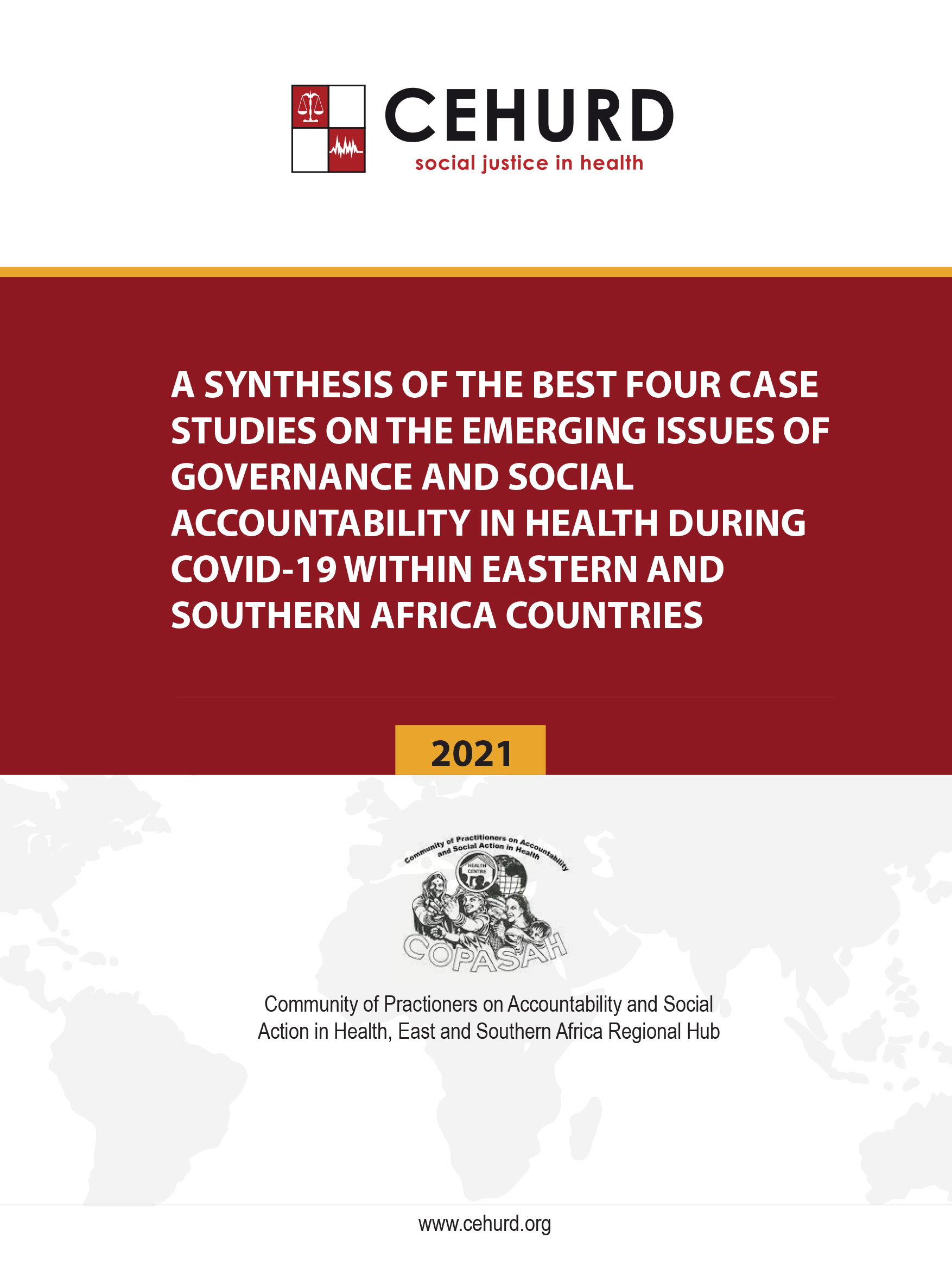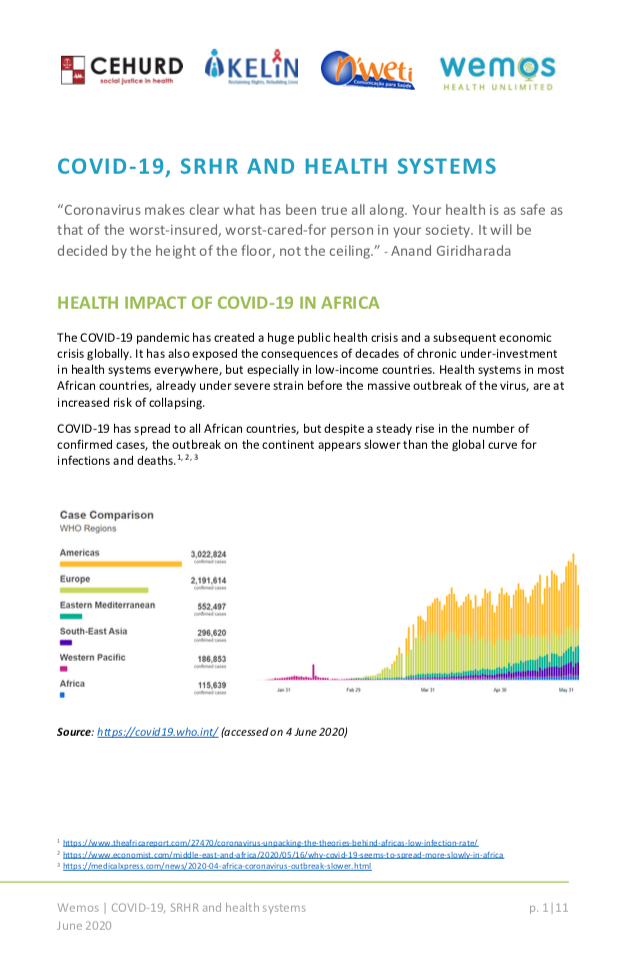The outbreak of coronavirus (COVID-19) is not only a public health emergency causing loss of life and human suffering; it also poses a major threat to the global economy and extraordinarily impacts the social-economic lives of humanity. Health systems in both high and low-income countries have struggled to provide adequate COVID-19 testing and care with negative impacts on the continuity of services for non-COVID-19 health care. There are tremendous concerns about such impacts on the healthcare system and social policy in a number of African countries.
This paper reflects the practices and emerging issues of governance and social accountability during the COVID-19 pandemic within the Eastern and Southern Africa region borrowing from the experience of practitioners on accountability and social action in Health.
“Coronavirus makes clear what has been true all along. Your health is as safe as that of the worst-insured, worst-cared-for person in your society. It will be decided by the height of the floor, not the ceiling.” – Anand Giridharada
The COVID-19 pandemic has created a huge public health crisis and a subsequent economic crisis globally. It has also exposed the consequences of decades of chronic under-investment in health systems everywhere, but especially in low-income countries. Health systems in most African countries, already under severe strain before the massive outbreak of the virus, are at increased risk of collapsing.
COVID-19 has spread to all African countries, but despite a steady rise in the number of confirmed cases, the outbreak on the continent appears slower than the global curve for infections and deaths.


